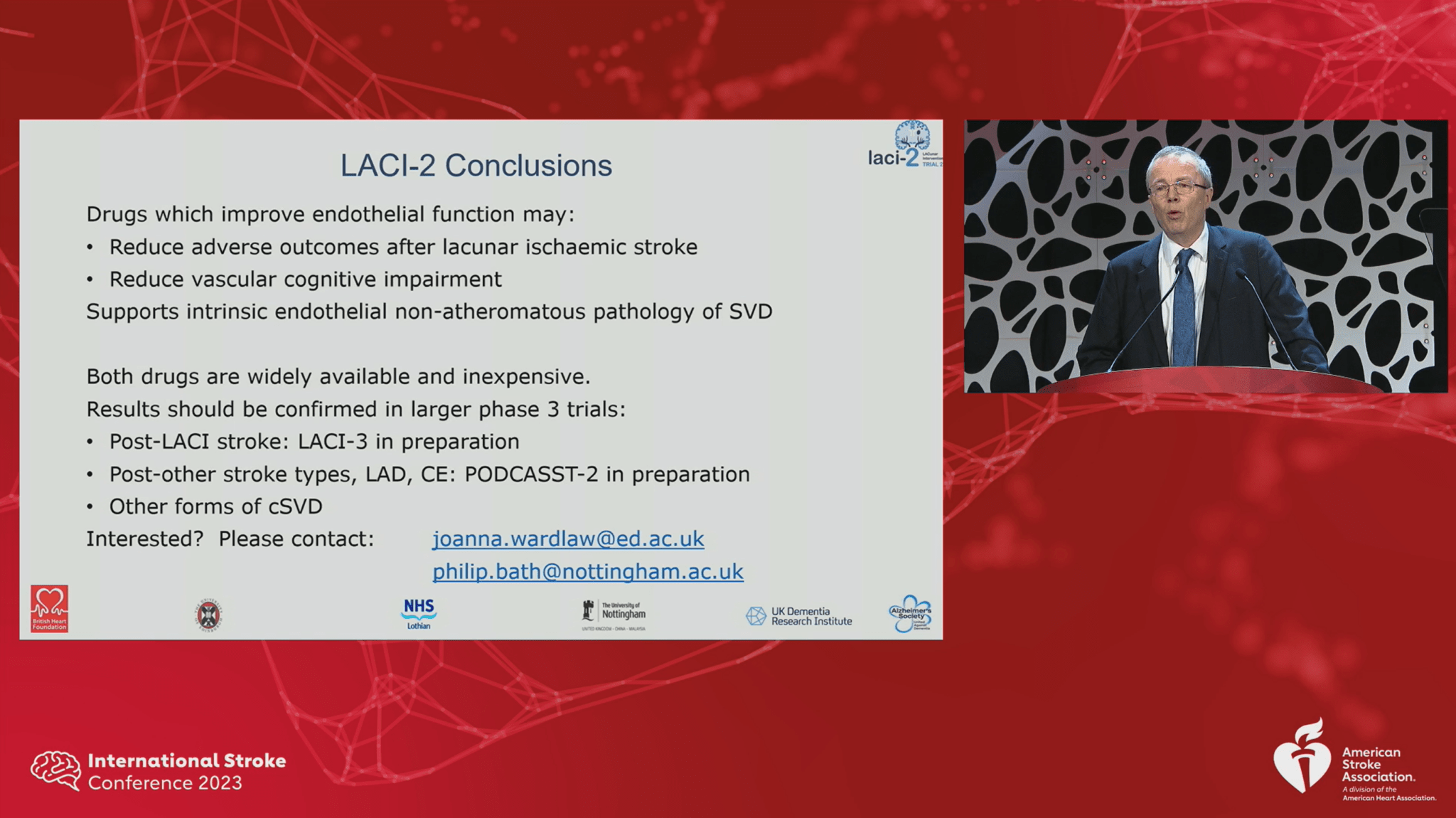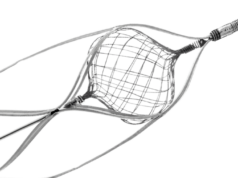
A study of two widely used cardiovascular medications—cilostazol and isosorbide mononitrate—in more than 350 patients has confirmed that both were well-tolerated and safe for patients experiencing a stroke caused by a clot in a small blood vessel deep in the brain. The results suggest these medications may help to improve patient outcomes, as per preliminary late-breaking data presented at the International Stroke Conference (ISC; 8–10 February 2023, Dallas, USA).
Small vessel disease of the brain accounts for 20–25% of all ischaemic strokes, according to previous research. A lacunar stroke, or small vessel stroke, occurs when the inner lining of the tiny blood vessels inside the brain are damaged.
“Currently, there is no proven treatment to prevent poor outcomes after lacunar stroke, so the ultimate goal with this research is to evaluate if medications with potential modes of action on the inner lining of blood vessels might help improve small vessel function, and prevent or slow long-term brain damage after lacunar stroke,” said lead study investigator Joanna Wardlaw (Edinburgh University, Edinburgh, UK).
The medications included in the study—the LACI-2 trial—are commonly prescribed for other cardiac conditions. Isosorbide mononitrate is used to treat chest pain, while cilostazol is often prescribed for people with peripheral artery disease.
The LACI-2 trial
LACI-2, which the researchers state is the second largest trial ever in lacunar stroke, examined whether such a trial was feasible among people with lacunar strokes and if the medications would be well-tolerated for one year after lacunar stroke. Researchers also analysed safety and other outcomes, including recurrent stroke, cognitive impairment, dependency, mood and quality of life. This detailed information is needed for the next stage of research—a Phase 3 trial, which would include more study participants.
From February 2018 to May 2022, researchers enrolled 363 adults who had experienced lacunar stroke from 26 stroke centres throughout the UK. The participants had an average age of 64 years, and 31% were women. All study participants continued to take their usual prescribed medications as per stroke guidelines, including those that reduce blood clotting, lower blood pressure and/or lower cholesterol—all of which may decrease the risk of a second or recurrent stroke.
Participants were randomly assigned to one of four treatment groups: 40–60mg/day of oral isosorbide mononitrate alone; 200mg/day of oral cilostazol alone; both medications; or neither medication, for one year. The participants completed phone surveys at six and 12 months to assess health status, including recurrent stroke and heart problems, cognitive tests, symptoms, and quality-of-life surveys, and underwent brain imaging at 12 months.
New stroke data
The study met its initial goals to determine whether a larger trial was feasible, and if the medications were safe and tolerable. After one year, 358 of the patients were still participating in the study, with 95% taking at least half of the medication doses prescribed for the trial. Safety criteria were also met: four participants died; there were four episodes of bleeding outside of the brain; and no excessive falls or dizziness occurred. Some participants experienced mild symptoms—such as headaches—which were expected.
Researchers also saw some potential benefits from the medication groups, including data that indicated the group of patients who took the combined isosorbide mononitrate and cilostazol had a reduction in the amount of assistance they needed with everyday living tasks, a reduction in cognitive impairment, and positive impacts on mood and quality of life. Isosorbide mononitrate alone reduced recurrent stroke and cognitive impairment, and improved quality of life, while cilostazol alone reduced the need for daily assistance.
“There appeared to be some potential benefits that will need to be confirmed in a larger Phase 3 trial,” Wardlaw noted. “We saw good hints of efficacy, particularly for isosorbide mononitrate on reducing recurrent stroke and cognitive impairment, and we also found that both medications together seemed to work synergistically, rather than counteracting any benefit. This is very encouraging since no study has previously found any medications that positively affect cognitive impairment in small vessel disease strokes. So, we cautiously hope that these medications may have wider implications for other types of small vessel disease.”
Wardlaw and study co-lead author Philip Bath (University of Nottingham, Nottingham, UK) delivered these findings from LACI-2 for the first time at ISC 2023. Study limitations noted by the researchers include its relatively small patient cohorts; its open-label design; a lack of data on participant race/ethnicity; and the fact it was not intended to measure efficacy—meaning the results showing effectiveness “should be interpreted cautiously”.














